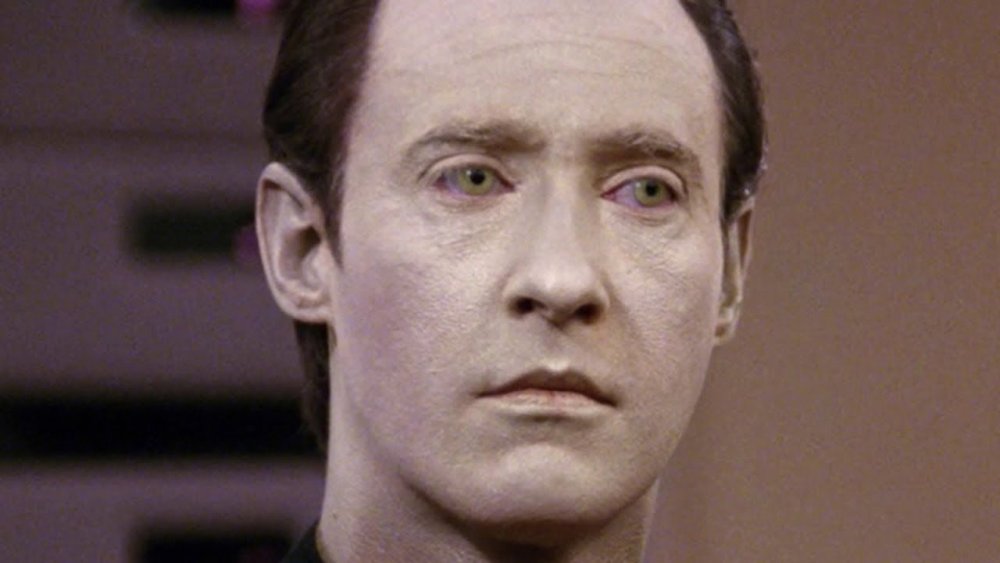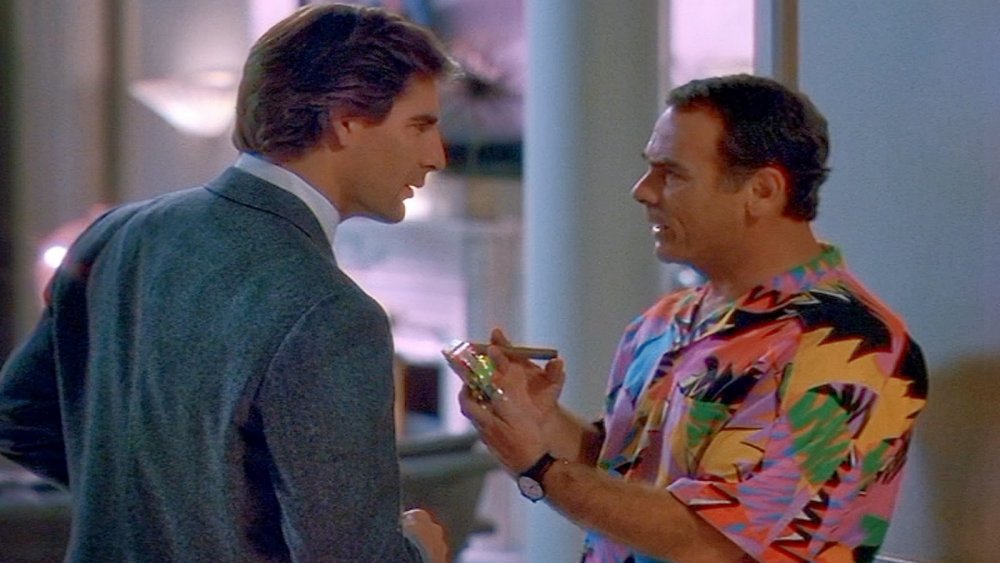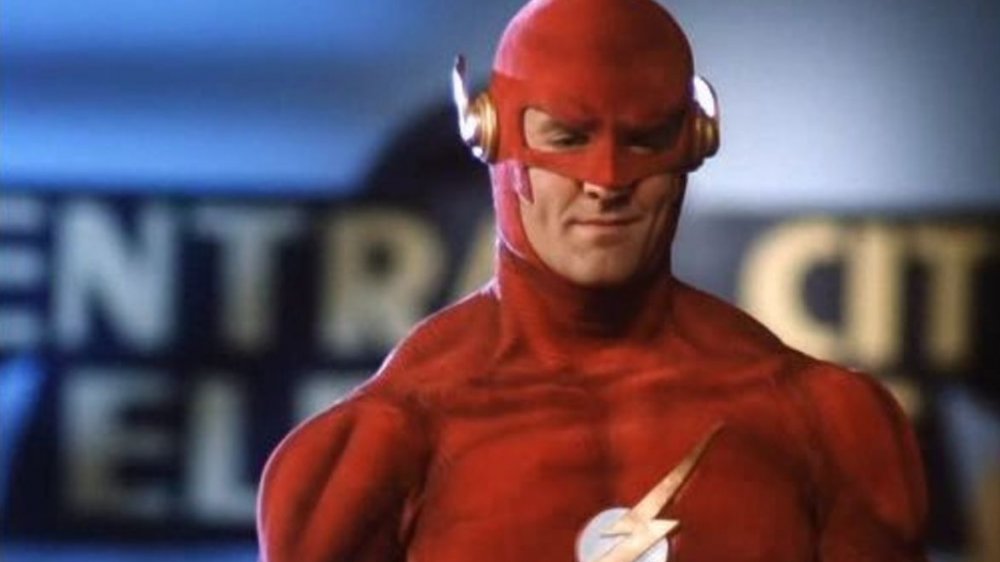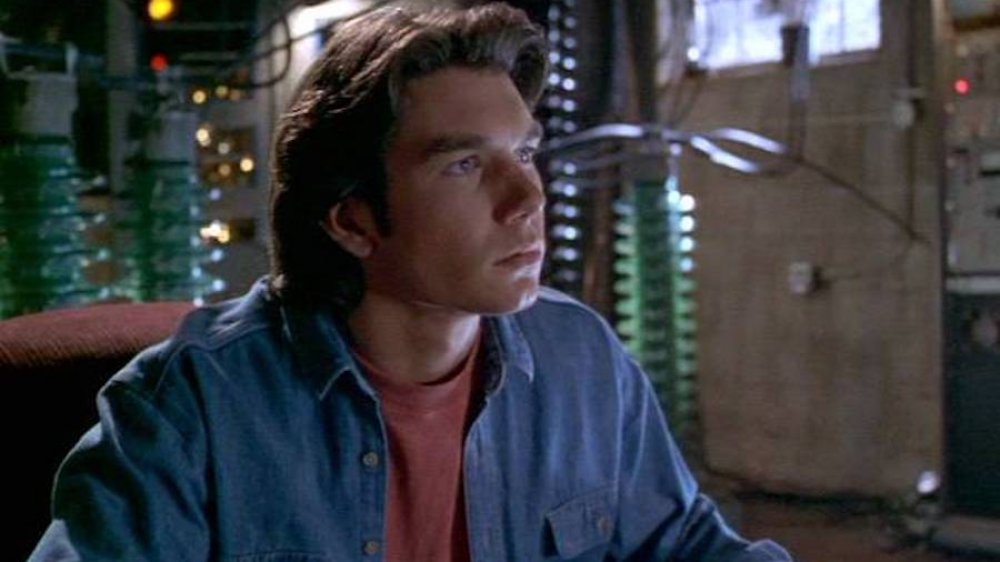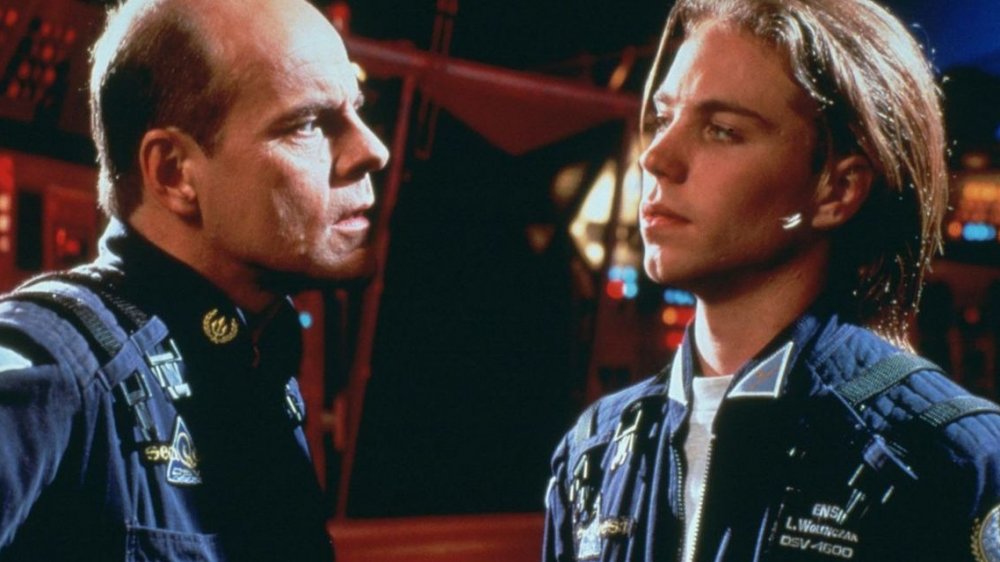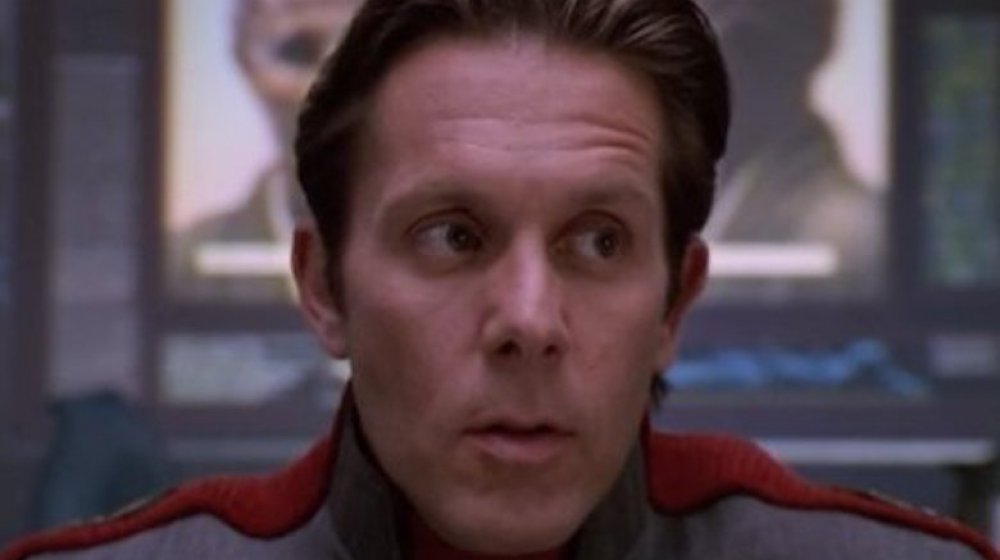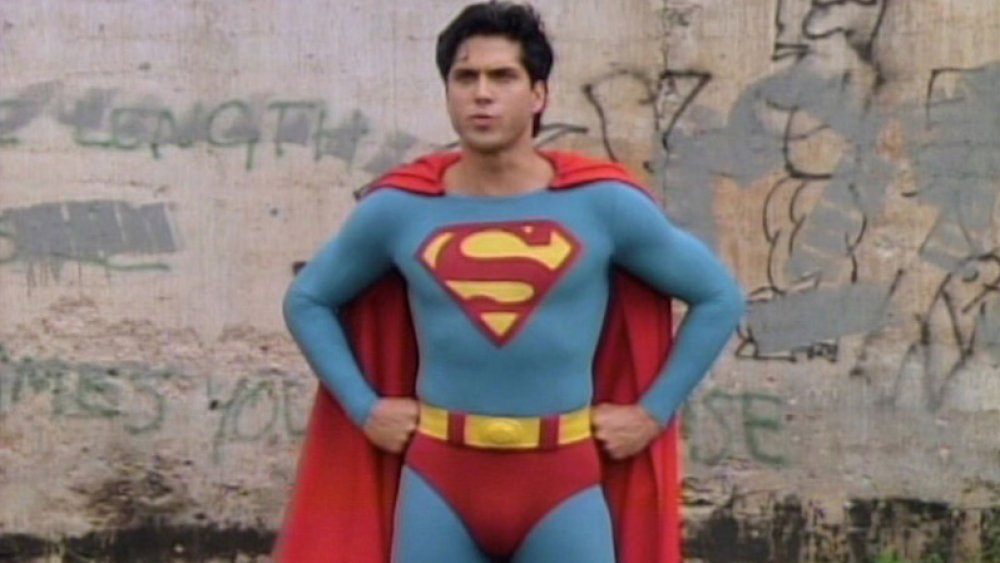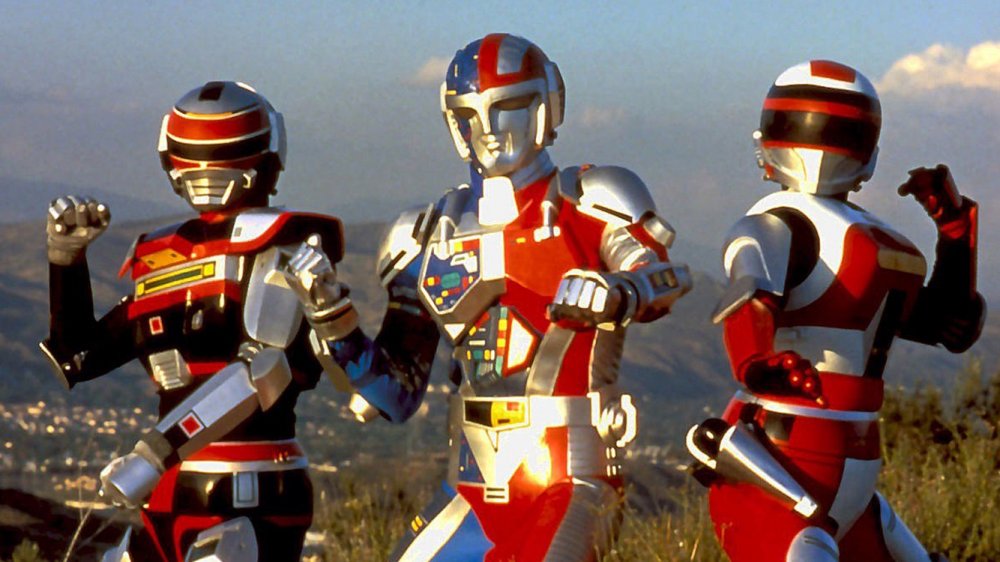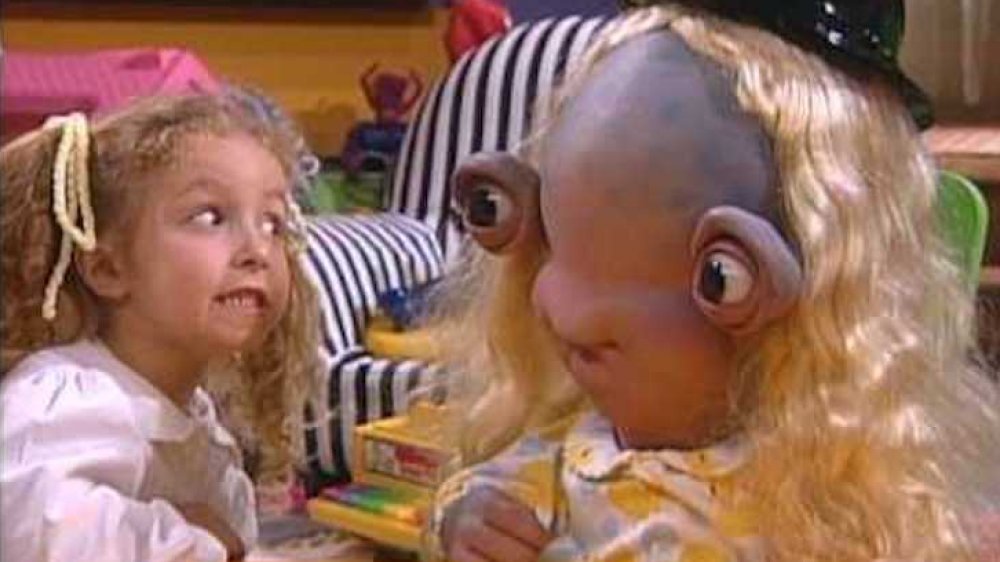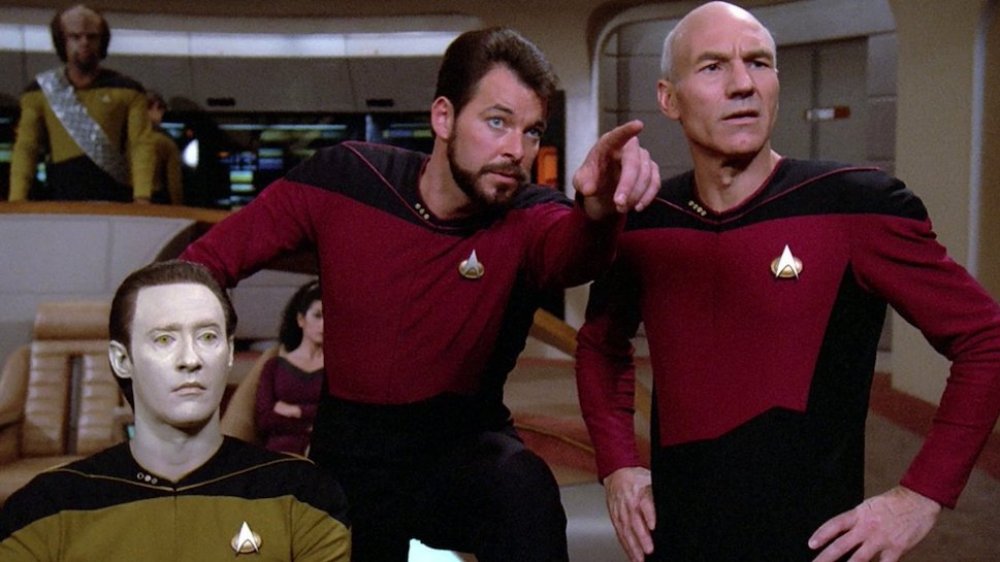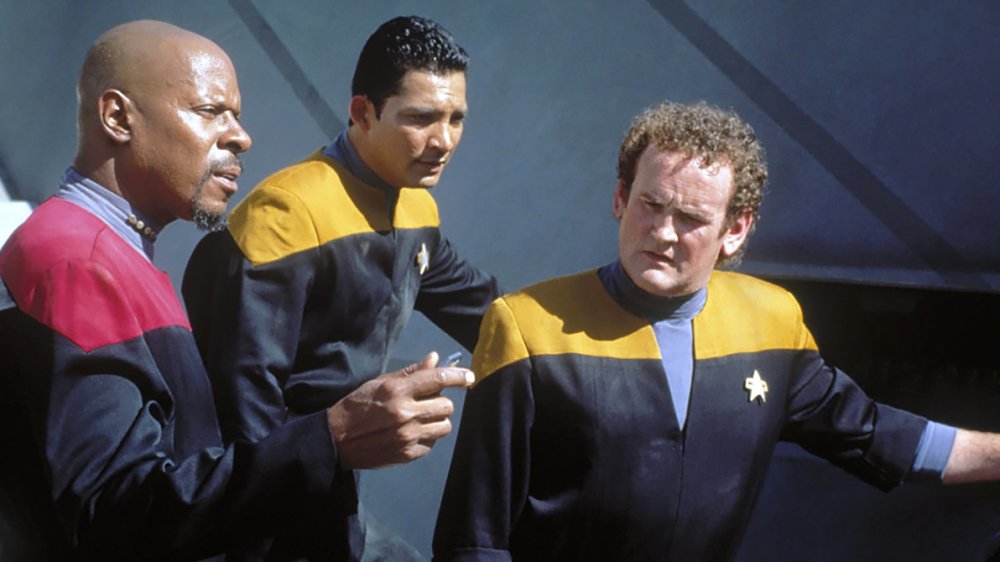The Real Reason These '90s Sci-Fi Shows Were Canceled
The 1990s was a boom decade for science fiction television, in terms of both quality and quantity. The big broadcasters had shows with space, monsters, or androids for just about everyone, from the paranormal investigations and conspiracies of The X-Files and the fish-out-of-water alien shenanigans of 3rd Rock from The Sun to the romantic superhero adventures of Lois & Clark: The New Adventures of Superman. Programming syndicates and cable networks could also rely on aliens, spaceships, and space stations as a reliable hook for viewers, with multiple Star Trek shows and series like Babylon 5. TV offered plenty of brave new worlds to explore, if you could look past some creaky, TV-budgeted special effects.
But all things must end, especially in the cutthroat, bottom line-oriented television industry. Sci-fi shows that didn't live up to expectations were often unceremoniously canceled in the '90s — often for complicated, fascinating, and bizarre reasons. Here's why some sci-fi classics, near-classics, and never-got-to-be-classics had their runs cut short.
Awards couldn't get '90s audiences to watch Quantum Leap
Even today, the concept of Quantum Leap is pretty novel, offering up endless possibilities for a sci-fi show. Dr. Sam Beckett (Scott Bakula) develops time-travel technology and tests it on himself, traveling into the past and temporarily appearing as a different person in each episode. After some humorous growing pains as Sam gets used to his new identity, he ultimately rolls with it and invariably leaves his momentary host's life a little bit better than before he arrived. And his guide through it all is a present day-based hologram version of his friend, Al (Dean Stockwell).
Not only one of the few network sci-fi shows of the time, the 1989-1993 series was the rare genre show to receive attention from mainstream awards bodies. Quantum Leap earned three Emmy nominations for Outstanding Drama Series, while Bakula and Stockwell both won a Golden Globe. But in spite of the acclaim, Quantum Leap never leapt to the top of the TV ratings chart. NBC frequently bounced it around multiple time slots during its four-year run, making it hard for fans to find. Viewership numbers reflected that, as the series never ranked higher than #53 in the annual ratings. In 1993, NBC canceled Quantum Leap (and Sam never even made it home).
The Flash was canceled because it was too costly
It's only recently that superhero-based entertainment has become mainstream entertainment worthy of huge budgets and good time slots. At one point, half of the CW's 12 primetime shows were based on DC Comics characters, including Supergirl, Black Lightning, Arrow, and The Flash. The CW's version of The Flash starred Grant Gustin as Barry Allen, aka the title character who wears a red jumpsuit and can run preposterously fast.
However, it's actually the second network primetime show about the speedster, following CBS' 1990-91 The Flash, starring John Wesley Shipp as the world's quickest hero. A dark, moody, crime-heavy show — Tim Burton's similarly gothic Batman had been a watershed of a hit in the summer 1989 — CBS had a lot of faith in the series, dropping a whopping $6 million on the pilot episode alone (ranking it among the most expensive ever), including $100,000 on Shipp's Flash costume. But then CBS didn't play it safe with the scheduling, placing the The Flash, a 60-minute show, in a bizarre, hour-straddling time slot of 8:30 PM to 9:30 PM, opposite NBC's mega-hits A Different World and Cheers, as well as Fox's hot soap Beverly Hills, 90210. Too few people watched such an expensive show, and CBS stopped The Flash after its one and only season.
Too many of Sliders' stars slid away
Sliders was kind of like Doctor Who, but American instead of British and featuring a sizable team of travelers rather than a Time Lord and a companion. Plus, these guys liked to "slide" through different alternate dimensions and historical timelines instead of time and space. Young genius Quinn (Jerry O'Connell) led the squad, which included his mentor, Professor Arturo (John Rhys-Davies), his friend Wade (Sabrina Lloyd), and a singer named Crying Man (Cleavant Derricks) who got caught up in a test of the sliding tech.
For the first three seasons, Sliders offered up fun, lightly comic, but highly scientific adventures to an appreciative but small audience. In the 1994-95 season, it was the 89th most-watched show on network TV. The next year, the series fell to #122. After ticking up a bit to #118 for the third season, Fox canceled the cult hit in 1997. Fortunately, the Sci-Fi Channel picked up the show, but that's when Rhys-Davies, Lloyd, and creators/writers/executive producers Robert K. Weiss and Tracy Tormé decided to leave, right around when the new bosses called for "more of an action show" than the "thought-provoking, fun" sci-fi show that had been the original intent. After one season on Sci-Fi, O'Connell left, too, leaving Derricks as the only original cast member. After limping along for one more season, Sci-Fi slid Sliders into the cancellation pile.
SeaQuest was a '90s sci-fi show that was always underwater
The early '90s NBC series SeaQuest DSV had all the makings of a hit. After all, the show was set on a high-tech, deep-sea vessel staffed by genius scientists portrayed by the likes of Jaws star Roy Scheider and teen heartthrob of the moment Jonathan Brandis as they had exciting, action-packed, sci-fi adventures. The crew also interacted with a talking dolphin named Darwin and met a mermaid. A joint production of Universal Studios and Steven Spielberg's Amblin Television, it boasted a huge per-episode budget (topping out at $1.8 million) that made for great-for-TV-at-the-time special effects.
And yet, NBC couldn't pull in a big audience. For its freshman season of 1993-94, SeaQuest DSV ranked a lowly #83 in the ratings, perhaps because it aired opposite CBS' very popular Murder, She Wrote and Fox's Martin. Efforts to revamp the series — switching out cast members, committing to less science-heavy stories, and venturing outside of the submarine more often — only worked a little, with the show moving up to 64th place in the ratings for the 1994-95 season. For season three, producers once more made broad changes, moving the action ahead ten years, dumping Scheider in favor of Michael Ironside as a new captain, and renaming the show SeaQuest 2032. That didn't do the trick, as the show fell to a lowly #117 for the 1995-96 season before NBC permanently sank the series.
It's no secret why the star of Alex Mack walked away
Anchoring Nickelodeon's Saturday-night SNICK lineup for most of the mid-'90s, The Secret World of Alex Mack was a sci-fi show about an Arizona teenager (Larisa Oleynik) who gets covered in a secret proprietary chemical that gives her powers like telekinesis, the ability to shoot electricity out of her fingertips, and to transform into a sentient puddle at will. The powers were difficult to control and often arbitrary, making The Secret World of Alex Mack a sci-fi allegory about the constantly baffling weirdness of adolescence.
Alex Mack ran on Nickelodeon from 1994 to 1998, and the network was more than willing to green-light a fifth season. Executive producer and co-creator Tommy Lynch took Oleynik, along with her mother and manager, out to a fancy dinner at a Hollywood restaurant and formally presented his offer for season five, which also included a substantial amount of money and a proposal of an Alex Mack movie. However, Oleynik said no thanks. "It was an incredible thing he was offering me, and I knew that at the time, but I was a little burnt out," the actress told HuffPost. She wanted to finish high school and attend college and also leave the Alex Mack character where she was at with the conclusion of season four. As Oleynik explained, "She was starting to grow up and that last season, she gets a boyfriend ... I just kind of wanted to keep it innocent."
The crusade to continue Babylon 5 was canceled quickly
Babylon 5 was among the most prominent sci-fi shows of the '90s. Its first four seasons aired on local TV stations affiliated with the Prime Time Entertainment Network programming block, and when that conglomeration went defunct, the show finished its run on cable network TNT. Babylon 5 ran for five seasons, as had been the intent from the beginning for creator J. Michael Straczynski, who'd mapped out one big, grand story about a space station, its inhabitants, and the sometimes warring alien races it encounters.
In 1999, about a year and a half after the final Babylon 5 aired, TNT broadcast A Call to Arms, a Babylon 5 made-for-TV movie that acted as a bridge and set-up to a new space-set series called Crusade. An entire first season of 13 episodes were written, shot, and completed, only for TNT to preemptively cancel Crusade before its premiere, rendering the whole thing a "limited series." According to Stracyznski, TNT wanted the show to appeal to a broader audience, and the studio made him comply with its creative demands. But ultimately, Stracyznski didn't give the network what it wanted, so it pulled the plug.
Superboy was canceled in favor of a higher-profile '90s show
Superboy got off to a rocky start. Debuting in syndication in 1988, the show looked at Superman, aka Clark Kent, just before he'd grow into his powers as the Man of Steel and find work as a journalist at The Daily Planet. John Haymes Newton won the role of college-age Superman, but he was fired after season one when he asked for more money around the same time he arguably violated a morals clause in his contract with a public drunkenness arrest. Producer Ilya Salkind replaced him with 31-year-old baby-faced model-turned-actor Gerard Christopher, who proved a good fit. The ratings for the newly rebranded The Adventures of Superboy flew into the list of the ten most watched syndicated TV series a few episodes after his arrival.
The Adventures of Superboy ran for 100 episodes over four seasons, and it was popular enough to keep going, but Superman-controlling studio Warner Bros. wouldn't have it. It had started work on a new Superman TV series, Lois & Clark: The New Adventures of Superman, set to air in primetime on network television, making it a much more high profile project than the lowly syndicated Superboy. Warner not only wouldn't renew the show, but the studio filed paperwork regarding Salkind's right to make Superman television, preventing even Superboy reruns from airing.
VR Troopers couldn't approach the Power Rangers' popularity
In 1993, Mighty Morphin' Power Rangers debuted, and it quickly became a multi-media kiddie phenomenon not seen since the likes of Masters of the Universe a decade earlier. The plot followed a group of teenagers who were bestowed with mystical martial arts abilities (and the control of giant robots), which they used to fight space monsters. Mighty Morphin' Power Rangers dominated the ratings while action figures of the different Power Rangers flew off the shelves. A year later, the children's television landscape was flooded with blatant Power Rangers clones, including Tattooed Teenage Alien Fighters from Beverly Hills, Superhuman Samurai Syber-Squad, and VR Troopers.
In that series, a group of friends are given fighting suits and powerful vehicles by the mysterious Professor Hart, who needs them to fight the menacing army of Grimlord, which is attempting to break out of the virtual reality world and into the meatspace. Unlike the Power Rangers, the VR Troopers weren't teens but well into their 20s. And unlike the Power Rangers clones, VR Troopers lasted two seasons as opposed to one. What ultimately did it in was that it couldn't compete with Power Rangers where it really counted — toy sales. The whole point of VR Troopers was to move toys, and not enough kids bought the merchandise to justify a third season of the TV show.
Aliens in the Family failed to rework TGIF
If you were a kid, tween, or non-partying adult in the early '90s, the place to be on Friday nights was in front of the TV, tuned in to ABC's "TGIF" lineup of sappy, family-friendly programming like Full House, Family Matters, and Step by Step. By 1996, many "TGIF" shows were fading (if not already over), and ABC made attempts to lure in newer and even younger viewers with puppet-based programming. And during that season, Muppets Tonight and Aliens in the Family joined TGIF.
The first was an update of the classic The Muppet Show while the latter was a bizarre sci-fi sitcom about a Brady Bunch-esque blended family, except dad Doug Brody and his kids were human, and mom Cookie and her offspring were mildly monstrous aliens. (Their meet-cute? Cookie abducted Doug, and then he fell in love with her.) The show's real star was the strange and grotesque Bobut, a pre-Stewie from Family Guy talking baby genius with a taste for chaos and destruction. The creature even had a catchphrase: "I require pudding ... now!"
Although the aliens were the work of the famous Jim Henson's Creature Shop, the tonally dissonant Aliens in the Family didn't mesh with the rest of TGIF, and it lasted just eight episodes. Nor did it help to revamp the TGIF lineup, which by fall 1996 was back to its lineup of teen-centered shows.
Star Trek: The Next Generation jumped to movie theaters
Star Trek: The Next Generation revived and reinvented the Star Trek franchise on the small screen, leaving behind the original series' campy vibe and clunky effects in favor of sleek, high production values. But it also ramped up the thoughtful, meaningful allegorical plots, all led by the captivating Patrick Stewart as the kind and brave Captain Jean-Luc Picard.
After seven successful seasons, The Next Generation wrapped up with a finale episode that drew more than 31 million viewers — blockbuster ratings for a network TV show but unheard of for a series syndicated to individual local stations. A few months later, the show received an Emmy nomination for Outstanding Drama Series, which was an extreme rarity for a non-network show and a sci-fi series. So why would Paramount set phasers to "cancel"?
The big screen beckoned. Just four days after the last episode of The Next Generation wrapped, cast members reported to a different stage on the Paramount lot to film Star Trek: Generations, the first movie in the long-running blockbuster franchise to feature the casts of both flagship Star Trek shows. In that film, the old crew passed the torch to the newer one. William Shatner's Captain Kirk died, making room for Picard and company to occupy three more Star Trek movies.
Deep Space Nine ran out of space
With the commercial and critical popularity of Star Trek: The Next Generation, it was clear that '90s TV viewers wanted more science fiction options, particularly Star Trek shows. In 1993, the space station-set Star Trek: Deep Space Nine debuted in syndication, featuring Avery Brooks as commanding officer Benjamin Sisko, the first African-American lead character in franchise history. DS9 earned solid ratings in syndication for most of its early seasons, guaranteeing at least a moderately long run. The success of Fox in the late '80s and early '90s showed the TV industry that there was room on the dial beyond the "big three" of ABC, CBS, and NBC. In 1993, plans for new channels UPN and WB were underway.
The new networks competed to nail down affiliates, most of which were formerly independent channels around the U.S., and which had relied heavily on syndicated programming like Deep Space Nine. In short order, a few hundred formerly independent stations signed up to air UPN and WB programming, and non-network shows suddenly had less access to airtime. Oddly enough, UPN was operated by Paramount, the rights holder of Star Trek properties. The very first show ever broadcast on UPN? Voyager, another Star Trek series.
